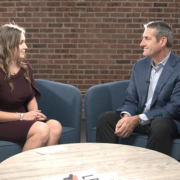UCB launches make HStory, an educational campaign offering resources and support for those living with hidradenitis suppurativa
UCB launches make HStory, an educational campaign offering resources and support for those living with hidradenitis suppurativa
ATLANTA, April 10, 2024 – 8:00am (EST) – UCB, a global biopharmaceutical company, today announced the launch of Make HStory, an educational campaign that provides tools and resources for those living with hidradenitis suppurativa (HS) and their dermatologists.
HS is a chronic, complex, and debilitating inflammatory skin disease that impacts approximately one percent of the population in most studied countries, and large unmet needs remain. The average time from symptom onset to diagnosis is 10 years with more than three misdiagnoses along the way, which can result in the disease progressing to more severe HS, particularly for those with aggressive progression. By encouraging patient and dermatologist conversations, Make HStory aims to help increase understanding of the disease and empower patients to have conversations with their dermatologist about management options.
“My hope for Make HStory is that it can empower people who have lived with HS in silence or without answers to seek out the support they may need and visit a dermatologist to discuss the optimal care plan,” said Brittany Blair, U.S. Immunology Patient Strategy lead, UCB. “My UCB colleagues and I are incredibly grateful to those who have already shared their HS journeys and stories as part of the Make HStory campaign. Their own experiences and personal histories are what will provide hope and a path forward for so many others.”
Created in partnership with individuals living with HS and their dermatologists, this new campaign features stories of those living with HS, informational videos, and interactive tools and resources for those seeking management options, daily care, and information about HS. The patient campaign was created as a partner to the previously launched Make HStory medical education campaign, and features robust educational information, downloadable resources, a strong online and streaming service video presence, and social media, including Instagram and Facebook.
“The Make HStory disease-state education campaign is a testament to UCB’s commitment to improving the lives of millions of people living with inflammatory diseases, like HS,” said Camille Lee, Head of U.S. Immunology, UCB. “Engaging both dermatologists and patients with information about HS helps ensure that key facts critical to improving diagnostics, care, and management can be incorporated in patient care, whether raised by a patient or their provider.”
UCB is proud to contribute to advancing the understanding of HS and is committed to continuing its mission to address unmet needs for those living with this severe disease. To learn more about UCB’s commitment to patients impacted by immunological diseases, visit UCB-USA.com. To stay up to date on the latest HS resources, visit https://www.makehstory.com/ and follow Make HStory on Instagram at @MakeHStory and on Facebook at www.facebook.com/makehstory.
About Hidradenitis Suppurativa (HS)
Hidradenitis suppurativa (HS) is a chronic, recurring, painful, and debilitating inflammatory skin disease.1,2 The main symptoms are nodules, abscesses, and pus-discharging draining tunnels (channels leading out of the skin), which typically occur in the armpits, groin, and buttocks.1,2 People with HS experience flare-ups of the disease as well as severe pain, which can have a major impact on quality of life.1,2
HS most commonly develops in early adulthood and affects approximately one percent of the population in most studied countries.1,2 Approximately one-third of people with HS have a family history of HS, and lifestyle factors such as smoking and obesity can also play a crucial role in the clinical course of HS.1,2
The symptoms of pain, discharge, and scarring are not only a physical burden. People with HS also experience stigma: worrying about or directly experiencing negative attitudes and reactions from society in response to their symptoms.4 These feelings can lead to embarrassment, social isolation, low self-esteem, and sexual life impairment, and impact all areas of life, including interpersonal relationships, education, and work.3
Source: UCB










